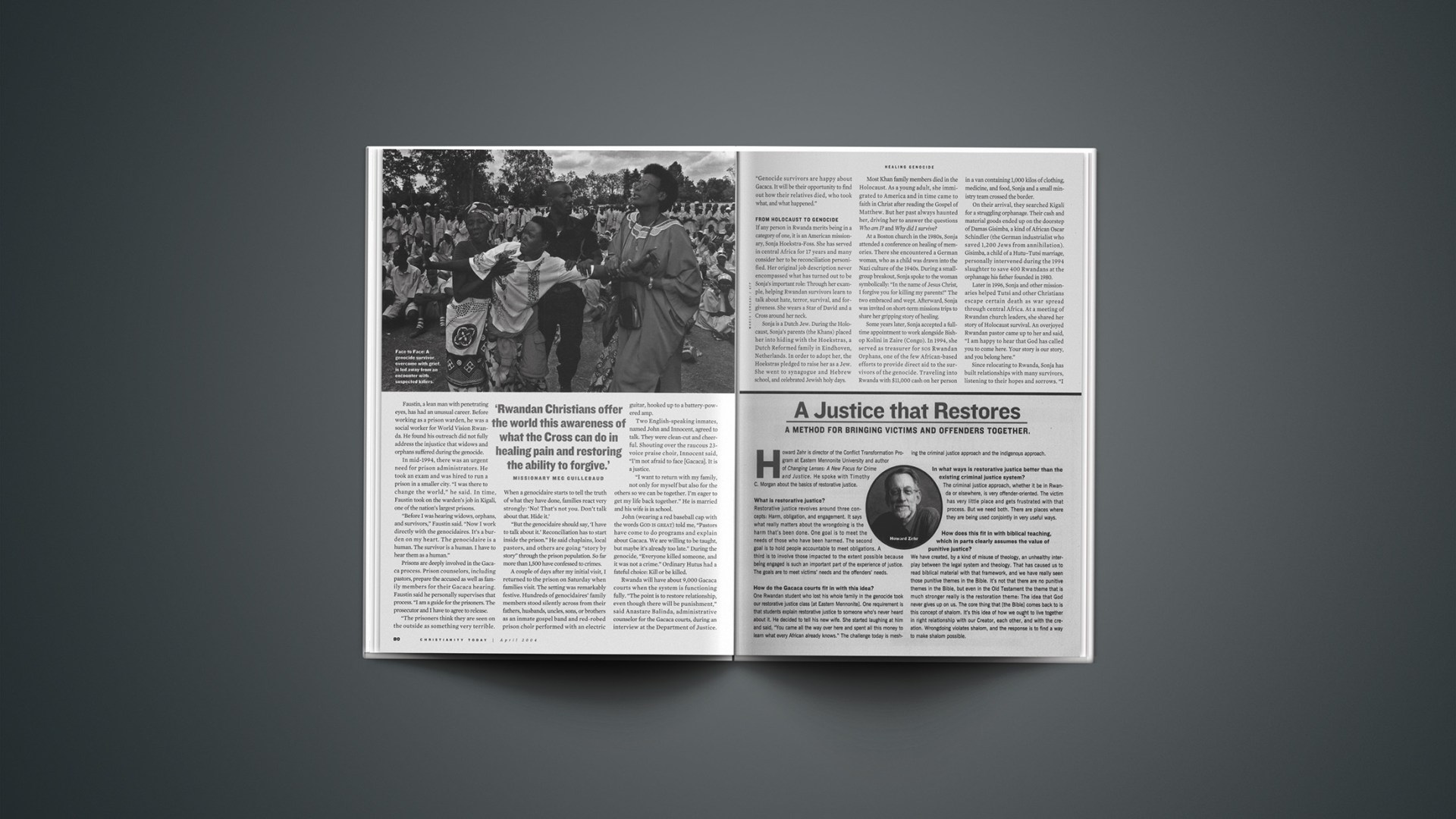Howard Zehr is director of the Conflict Transformation Program at Eastern Mennonite University and author of Changing Lenses: A New Focus for Crime and Justice. He spoke with Timothy C. Morgan about the basics of restorative justice.
What is restorative justice?
Restorative justice revolves around three concepts: Harm, obligation, and engagement. It says what really matters about the wrongdoing is the harm that’s been done. One goal is to meet the needs of those who have been harmed. The second goal is to hold people accountable to meet obligations. A third is to involve those impacted to the extent possible because being engaged is such an important part of the experience of justice. The goals are to meet victims’ needs and the offenders’ needs.
How do the Gacaca courts fit in with this idea?
One Rwandan student who lost his whole family in the genocide took our restorative justice class [at Eastern Mennonite]. One requirement is that students explain restorative justice to someone who’s never heard about it. He decided to tell his new wife. She started laughing at him and said, “You came all the way over here and spent all this money to learn what every African already knows.” The challenge today is meshing the criminal justice approach and the indigenous approach.
In what ways is restorative justice better than the existing criminal justice system?
The criminal justice approach, whether it be in Rwanda or elsewhere, is very offender-oriented. The victim has very little place and gets frustrated with that process. But we need both. There are places where they are being used conjointly in very useful ways.
How does this fit in with biblical teaching, which in parts clearly assumes the value of punitive justice?
We have created, by a kind of misuse of theology, an unhealthy interplay between the legal system and theology. That has caused us to read biblical material with that framework, and we have really seen those punitive themes in the Bible. It’s not that there are no punitive themes in the Bible, but even in the Old Testament the theme that is much stronger really is the restoration theme: The idea that God never gives up on us. The core thing that [the Bible] comes back to is this concept of shalom. It’s this idea of how we ought to live together in right relationship with our Creator, each other, and with the creation. Wrongdoing violates shalom, and the response is to find a way to make shalom possible.
Copyright © 2004 Christianity Today. Click for reprint information.
Related Elsewhere:
This is a sidebar to today’s lead article on the Rwanda genocide.
Author Timothy Morgan discusses the article in his Inside CT.
More on Rwanda includes:
Influence of Roman Catholic Church in Acquittal of Rwandan Bishop Debated | Augustin Misago cleared of 1994 genocide charges. (June 20, 2000)










